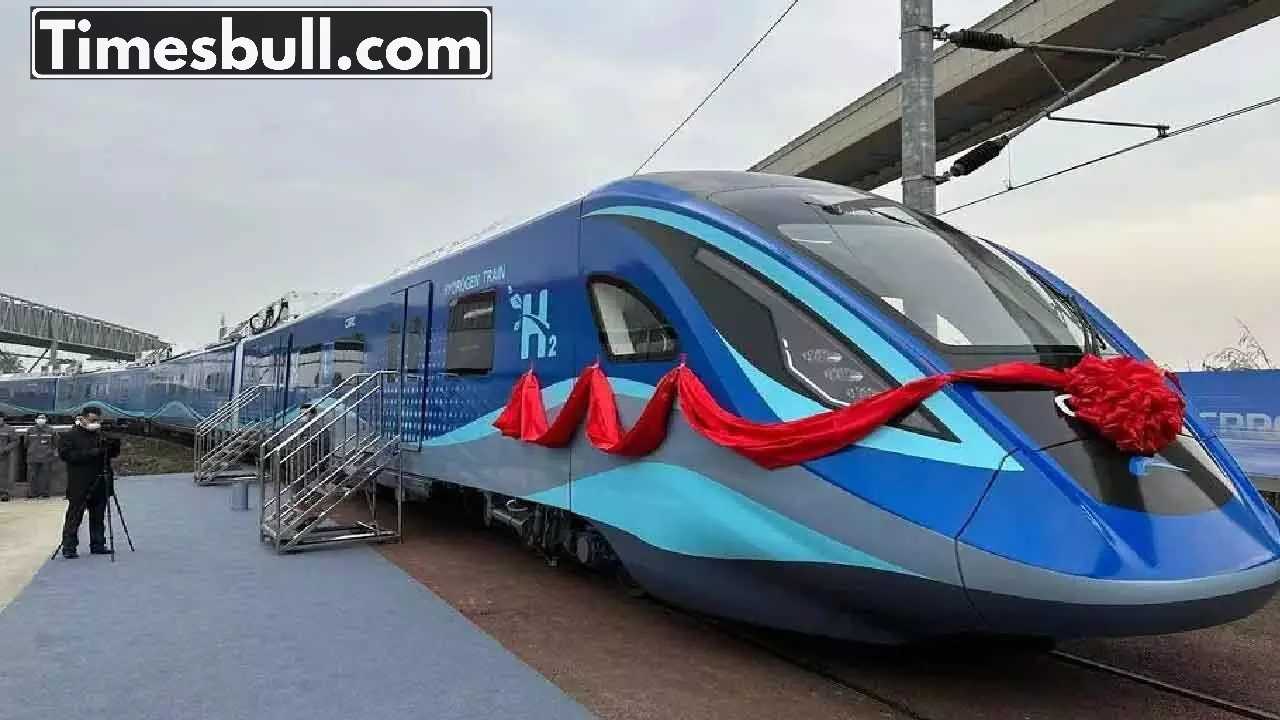A big update revealed regarding the Hydrogen Train. India’s groundbreaking hydrogen fuel cell train, originally set to debut in December 2024, is now slated to commence operations on March 31. However, it is likely to be delayed until June due to unexpected technical issues encountered during testing. The postponement follows the identification of necessary updates to enhance the train’s hydrogen fuel cell system, ensuring it can effectively manage its high-load capacity. Here are the details.
This cutting-edge hydrogen train, designed to operate on the historic Kalka-Shimla route, boasts a powerful 1,200 HP hydrogen engine, making it the most potent hydrogen-powered train globally. The technology harnesses hydrogen and oxygen to generate electricity through fuel cells, producing only steam as a byproduct, thus posing no environmental threat. The creation of this engine showcases India’s capability to develop eco-friendly vehicles entirely within the country.
The train’s design is optimized for short-distance travel, with plans to initially run along an 89-km route between Jind and Sonipat in Haryana. It can accommodate up to 2,638 passengers and features eight passenger coaches. Three of these coaches are outfitted with hydrogen cylinders, integrated fuel cell converters, batteries, and air aerosols. This initiative marks a significant advancement towards achieving zero-emission transportation in India.
Despite its remarkable features, the hydrogen train encounters operational hurdles, particularly in extreme weather conditions across the mountainous terrain between Shimla and Kalka. To facilitate smooth travel along the 96 km route, adjustments are being implemented to ensure the train operates efficiently in temperatures below 5 degrees Celsius or above 35 degrees Celsius while carrying less than 80 percent of its load.
Officials have pointed out that to keep up its performance on tough terrains, the train might need to run at lower speeds when it’s carrying over 2,200 passengers. To tackle this challenge, the new prototype design features a large fuel cell that enhances its operational flexibility.
In addition, Indian Railways is making significant upgrades to the tracks between Shimla and Kalka. This project will allow the hydrogen train to reach speeds of about 100 km/h while ensuring safety and greatly enhancing the travel experience. As part of these improvements, railway authorities have brought in experts from the renewable energy field to assess the train model, which is expected to meet the high standards set for this innovative project.
The Integral Coach Factory (ICF) in Chennai is leading the way in producing hydrogen trains, marking a major step in India’s move towards sustainable transportation. This initiative is being driven by the Ministry of Railways, which has set aside Rs. 2,800 crore for the development of 35 hydrogen fuel cell trains in the 2023-24 financial year. This funding aims to transform the Indian Railways system with environmentally friendly options, showcasing the government’s strong dedication to green energy initiatives.
